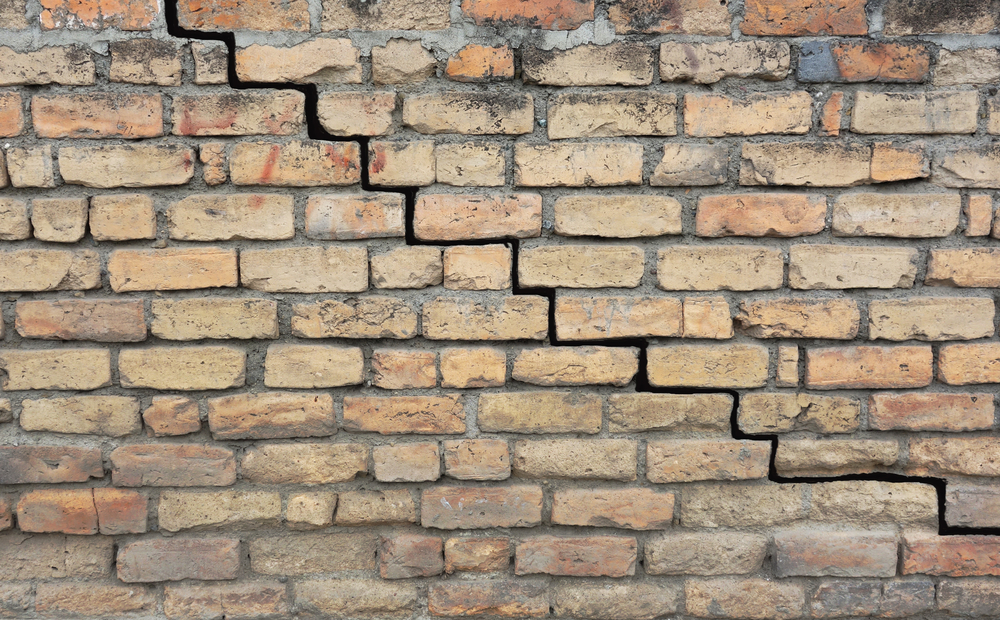
Understanding the Residential Construction Liability Act (RCLA)
Before a Texas homeowner can sue a builder, contractor, or remodeler for defective construction, the law requires an important first step: notice. This requirement comes from the Texas Residential Construction Liability Act (RCLA), which governs most residential construction defect claims.
At Fertitta & Givens, we help homeowners take the correct steps under the RCLA so they don’t risk delaying or losing their right to recover. If you're dealing with serious construction issues, like leaks, mold, cracked foundations, or poor workmanship, our firm is here to help you enforce your rights.
Call (346) 258-5803 or contact us online for a FREE consultation.
What Is the RCLA?
The RCLA is a Texas law that outlines how homeowners must notify builders of problems before filing a lawsuit. It applies to most single-family homes, townhomes, condos, and other residential construction. Key aspects of the law include:
- Notice Requirement – Homeowners must provide at least 60 days’ written notice to the builder describing the defects and the nature of the damage.
- Inspection Opportunity – Builders have a right to inspect the property and offer repairs.
- Settlement Offers – Builders may offer to repair, pay for, or otherwise settle the claim.
- Right to Sue – If a fair resolution isn’t reached, homeowners can then proceed with a lawsuit.
These steps are designed to encourage out-of-court resolution, but they don’t limit your right to file suit if repairs are inadequate or refused.




What the Notice Letter Needs to Include
A proper RCLA notice letter is a critical step in preserving your claim. It should include:
- A clear description of each defect or problem
- Where and when the defect was observed
- The nature of the resulting damage (e.g., water damage, structural risk, electrical hazard)
- A request for the builder to inspect or respond
This letter isn’t just a formality—it becomes a central document in your case. A vague or overly general notice can limit your ability to seek full compensation, since builders may later claim they weren’t properly notified about certain issues.
It can also be helpful to attach:
- Photos showing visible damage
- Contractor notes or repair estimates
- Inspection or expert reports (if available)
Our attorneys carefully craft these letters to meet RCLA requirements while protecting your leverage and preserving all viable claims.
Mistakes That Can Hurt Your Claim
Texas courts can dismiss a defect lawsuit if a homeowner skips the RCLA process or sends an incomplete notice. Common mistakes include:
- Failing to send a written notice at least 60 days in advance
- Not describing the defects in sufficient detail
- Failing to retain evidence (e.g., photos, expert reports, contractor correspondence)
- Allowing the statute of limitations to expire
Don’t let procedural errors jeopardize your ability to seek compensation. We guide clients through every step.
What If the Builder Won’t Cooperate?
Builders don’t always play fair. Some ignore the notice entirely. Others send out an inspector who doesn’t take the problem seriously or make lowball offers that don’t come close to covering the damage. It’s also common for builders to:
- Deny the defect exists or blame the homeowner
- Offer patchwork fixes that don’t address root causes
- Delay the process to run out the clock on your claim
If the builder doesn’t provide a good-faith resolution within the RCLA’s timeframes, you can move forward with legal action. In many cases, we can escalate the claim without needing to file a lawsuit immediately by showing the builder we’re prepared and serious.
At Fertitta & Givens, we don’t just send letters. We position our clients to take action if the builder won’t make it right.
What Happens After the Notice Is Sent?
Once the builder receives the RCLA notice, a revised timeline under HB2022 kicks in:
- 35 days – The builder can inspect the home (up to three times).
- 60 days – The builder must provide a written offer to repair or settle.
- 25 days – If the homeowner finds the offer unreasonable, they must respond in writing with the reasons why.
- 10 days – The builder then has 10 days to issue a supplemental offer.
This post-notice phase can feel like a waiting game, but it’s critical. Builders may use this window to gather evidence, so you should too. Continue documenting new or worsening damage and save all communications.
We help our clients:
- Evaluate builder offers
- Negotiate better resolutions
- Avoid being pressured into bad fixes
- Move forward with a lawsuit if needed
When the offer doesn’t measure up, or when no offer is made, we’re ready to take the next step.
Why RCLA Compliance Is So Important
Even if you have a strong case, courts may not allow you to move forward unless you’ve complied with the RCLA’s pre-suit requirements. That’s why we focus heavily on getting this step right from the start.
At Fertitta & Givens, we:
- Evaluate whether your case falls under the RCLA
- Draft and serve a compliant notice letter
- Help you respond to builder inspections or settlement offers
- File suit if the builder refuses to fix the problem
Important Update: Statute of Repose Change Under HB2023
As of June 9, 2023, the 10-year statute of repose in Texas has changed. For homes built after that date, a builder can reduce the statute of repose to just 6 years if they provide a 1-2-6 warranty. If a valid 1-2-6 warranty is not provided, the statute of repose remains 10 years.
This change significantly affects how long homeowners have to bring a claim, and it makes it even more important to act quickly and consult a knowledgeable attorney.
FAQ: RCLA and Texas Homeowner Rights
Do I Always Have to Send a Notice Before Suing?
Yes. In almost all residential construction defect cases, RCLA notice is required before filing a lawsuit.
How Long Does the Builder Have to Respond?
Under HB2022, the builder has 35 days to inspect, 60 days to provide a written offer, and 10 additional days to supplement the offer if the homeowner finds it unreasonable.
What Happens If I Don’t Follow the RCLA Process?
You may have your lawsuit dismissed or face delays. Courts expect homeowners to comply with the RCLA before suing.
Can I Still Sue If the Builder Offers to Fix the Problem?
Yes, especially if the offer is inadequate or doesn’t address the full extent of the damage. We help evaluate offers and pursue litigation if necessary.
If you’re dealing with serious residential construction defects, don’t delay. The RCLA process is complex, but we know how to navigate it. At Fertitta & Givens, we help Texas homeowners enforce their rights and hold builders accountable.
Call (346) 258-5803 or contact us online to speak with an RCLA attorney.











